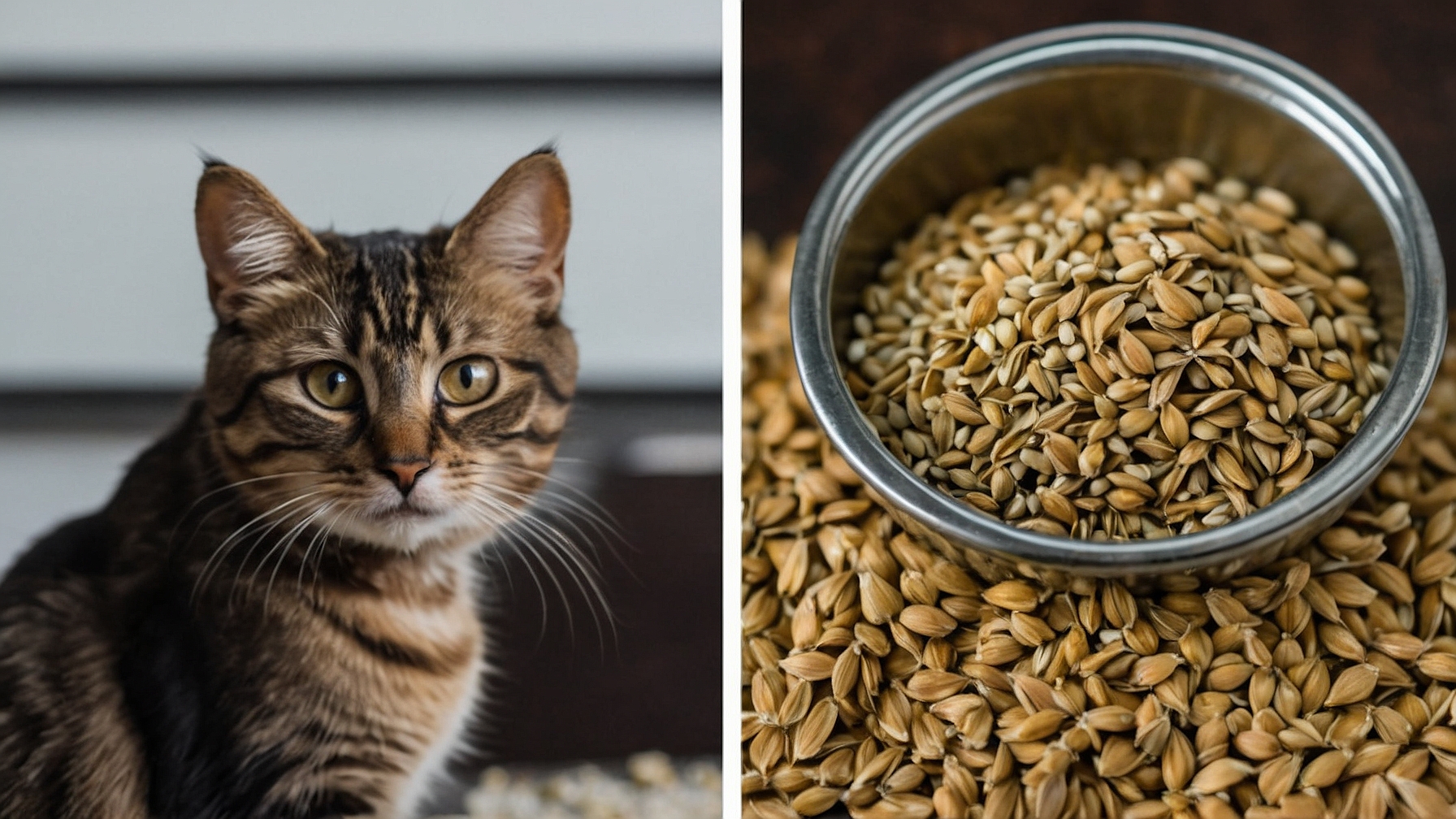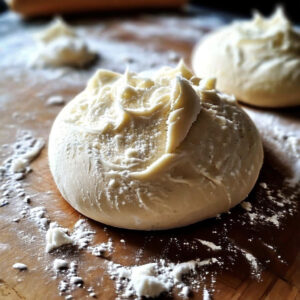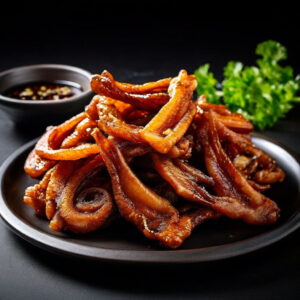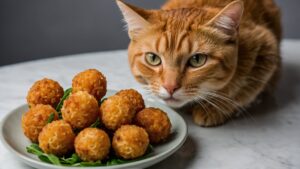Hemp seeds are becoming a popular superfood for humans. These tiny, nutty-flavored seeds are packed with protein, healthy fats, and fiber. But is this new health fad safe for cats to enjoy too?
With hemp products being more commonplace, you may be wondering if you can share a taste of your hemp hearts with your feline friend. The short answer is yes, cats can eat hemp seeds in moderation. But there are some guidelines to follow.
Keep reading to learn all about the benefits and risks of feeding hemp seeds to cats. We’ll cover:
Table of Contents
Can Cats Eat Hemp Seeds? Are Hemp Seeds Safe for Cats?
Hemp seeds come from the Cannabis sativa plant. But unlike marijuana, hemp seeds contain only trace amounts of THC, the psychoactive compound that causes a drug-like high. Hemp seeds will not get cats or any pets high.
The hemp seeds used for human food and animal feed come from specially cultivated low-THC hemp varieties. Hemp seed oils may have even less THC due to processing.
So hemp-derived products are non-intoxicating and generally safe for feline consumption. But it’s still smart to exercise caution when introducing new foods.
Nutritional Benefits of Hemp Seeds for Cats
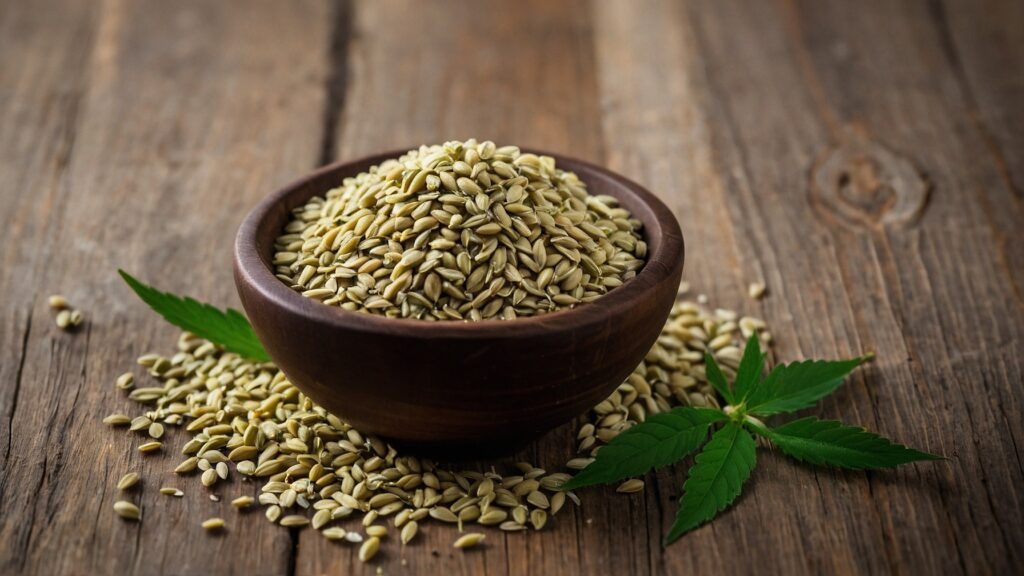
Now that we’ve established hemp seeds are safe for cats, let’s look at why they may provide health advantages:
High in Protein
Cats are obligate carnivores, meaning they need a diet high in meat-based proteins. Hemp seeds provide a vegetarian protein source with all nine essential amino acids.
Hemp contains over 25% protein content, offering roughly 5 grams of protein per tablespoon. This makes hemp a quality protein supplement.
While hemp shouldn’t replace meat, eggs, or dairy, it can be a beneficial addition, especially for senior cats who need extra protein.
Excellent Source of Omega Fatty Acids
One of the biggest benefits of hemp seeds for cats is their high omega fatty acid content.
Hemp seeds contain both omega-6 and omega-3 fatty acids in an optimal 3:1 ratio. Cats (and humans) often get too much omega-6 but need more omega-3s.
These essential fats support:
- Healthy skin and coats – Omega oils give fur a glossy, soft texture and help prevent dry, itchy skin.
- Reduced inflammation – Omega-3s are powerful anti-inflammatories that can ease joint pain and allergies.
- Healthy brain function – Omega oils are important for cognitive development, memory, and learning.
- A strong immune system – Omega fatty acids strengthen immunity against viruses, bacteria, and more.
- Cardiovascular health – Omega-3s support healthy heart rhythm and blood pressure.
- Vision – Omega-3s containing DHA help prevent age-related vision loss and eye problems.
No wonder omega supplements are popular for both humans and pets! Hemp seeds provide an easy dietary source.
Fiber Aids Digestion
Hemp seeds offer a source of plant-based fiber, containing about 1 gram of soluble fiber per 3 tablespoons.
Fiber benefits digestion in cats by:
- Promoting good gut bacteria that improve intestinal health.
- Bulking up stool to allow regular bowel movements and prevent constipation.
- Controlling blood sugar by slowing digestion and absorption of nutrients.
- Supporting a healthy weight by providing satiety from lower calorie bulk.
The fiber in hemp can be especially helpful for senior cats with GI issues. But introduce it slowly since too much fiber too fast can cause loose stools.
Risks of Feeding Hemp Seeds to Cats
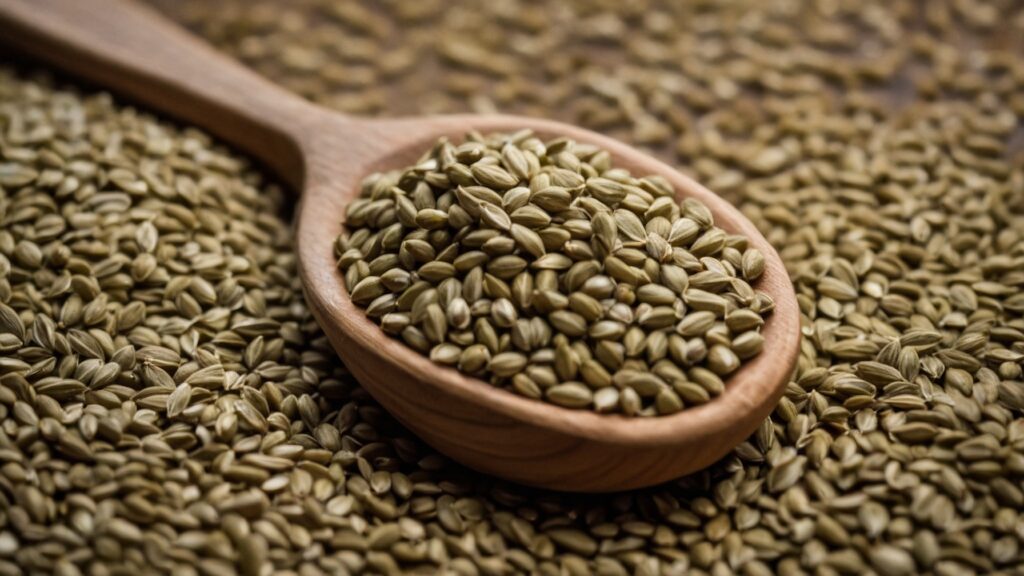
While hemp seeds offer nutritional advantages, they do come with some potential health risks for cats:
Choking Hazard
Like any small, hard food, whole hemp seeds pose a risk of choking or intestinal blockage if consumed in excess. It’s important to limit your cat’s portions and supervise treat times.
If giving whole seeds, follow this general rule of thumb: Stick to varieties under 1/8 inch (3mm) in size, about the size of a sunflower seed. Make sure your cat thoroughly chews seeds before swallowing.
Grinding hemp seeds into a meal using a coffee grinder reduces the risks.
High Fat Content
While the omegas in hemp seeds provide healthy fats, the overall fat content is quite high, around 14 grams per 3-tablespoon serving.
Too many high-fat foods can lead to pancreatitis, obesity, and other problems in cats. Limit hemp seeds to no more than 1-2 teaspoons per day for an average 10-pound cat.
Consult your vet about appropriate fat intake if your cat needs weight loss or has metabolic issues.
Allergies
Hemp allergies are uncommon but possible, just like with any food. Gastric distress, itching, hives, wheezing, and diarrhea can indicate an allergy.
If you notice any reaction after feeding hemp seeds, discontinue use and see your vet.
Interactions with Medications
The compounds in hemp seeds have potential interactions with some drugs cats may take:
- Blood thinners like warfarin – Hemp can increase bleeding risks.
- Immunosuppressants – Hemp may counteract these effects.
- Anticonvulsants – Hemp may raise seizure thresholds.
- Antidepressants – Possible serotonin changes.
- Sedatives – Hemp may increase drowsiness.
Always consult your veterinarian before introducing hemp seeds to a cat on regular medications.
How to Add Hemp Seeds to Your Cat’s Diet
Now that you know the pros and cons of hemp seeds for cats, let’s look at tips for incorporating hemp into your feline’s diet:
Grind Seeds First
To minimize choking hazards and make digestion easier, it’s best to lightly grind or finely chop hemp seeds first.
Use a coffee/spice grinder or food processor for smaller batches. Just pulse it a few times; you don’t want a super fine powder.
Mix with Food
Once ground, mix about 1/8 teaspoon of hemp seeds per 10 pounds of body weight into your cat’s regular meals. Both wet and dry food work.
Sprinkle a small pinch overtop canned cat food. For dry kibble, add hemp powder to a bowl first, then top with the kibble so it lightly coats.
Start with even less than the recommended amount and gradually increase to allow your cat’s digestive system to adjust.
Use Hemp Seed Oil
An even safer option than seeds is cold-pressed hemp seed oil. The oil contains the omega fatty acids without choking concerns.
Lightly drizzle about 1/4 teaspoon onto your cat’s food 1-2 times per week. Too much oil can cause loose stools.
Whole Seeds as Occasional Treats
It’s fine to offer a few whole hemp seeds to cats as a treat now and then. But always supervise to prevent overindulging and make sure your cat properly chews seeds before swallowing.
The Bottom Line: Should Cats Eat Hemp Seeds?
To summarize, adding a small amount of hemp seeds to your cat’s diet can be safe and beneficial when done properly. Hemp offers protein, omega oils, fiber, antioxidants, and more.
But moderation is key, as too much of a good thing can backfire. Excessive fat and calories can cause health problems.
Introduce hemp gradually and watch for any digestive upsets or allergies. And check with your veterinarian first if your cat takes medications or has health conditions.
While trendy superfoods come and go, hemp seeds provide legitimate nutritional value. In reasonable quantities, they can be a great supplement for cats. Just be sure to consult your vet on what makes sense for your feline friend.
Frequently Asked Questions
Do hemp seeds get cats high?
No, consuming hemp seeds will not get cats high or cause intoxicating effects. Hemp seeds contain only trace amounts of THC, lacking anywhere near the amount needed for psychoactivity. Just make sure any hemp products specify they are derived from industrial hemp suitable and legal for commercial use.
Are hemp and marijuana the same thing?
Hemp and marijuana both originate from the cannabis plant. But marijuana refers to psychoactive varietals grown for recreational use that have high concentrations of THC. Hemp has negligible amounts of THC but contains CBD and other non-intoxicating compounds considered medicinal. Think of hemp and marijuana as cousins – related but very different!
Are hemp seeds a choking hazard for cats?
Hemp seeds pose some risk of choking or intestinal blockage if consumed whole by cats or small dogs due to their tiny size. It’s best to grind seeds into a coarse meal or powder and mix into food in small amounts. Supervise your pet any time you give hard seeds. If your pet is prone to gobbling treats, give hemp-derived oil instead for safety.
What amount of hemp seeds can cats eat safely?
There is no official recommended dosage, but most experts suggest starting with 1/8 teaspoon of hemp seeds per 10 pounds of body weight once a day. Then gradually increase to twice a day at most. For hemp seed oil, around 1/4 tsp a couple times a week is a good starting point. Ultimately, adjust quantities based on your cat’s weight, metabolism, and response. Less is more when supplementing with any new food.
Are hemp seeds high in calories?
Yes, hemp seeds are relatively high in fat and calories. A 3 tablespoon serving of hemp seeds contains about 140 calories and 14 grams of fat. That’s why it’s important to limit intake for cats, especially less active senior cats who are prone to obesity. No more than 1-2 tsp per day is recommended. If your cat needs to lose weight, consult your vet on an appropriate fat and calorie allowance before feeding hemp seeds.
